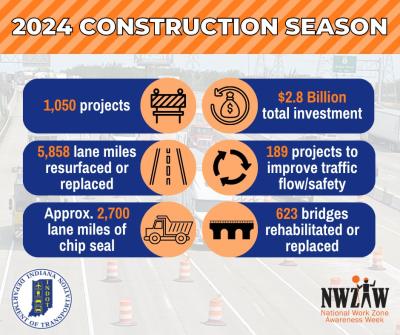WASHINGTON (AP) The House on Oct. 7 passed the most sweeping rewrite of corporate tax law in nearly two decades, a measure designed to end a nasty trade war with Europe and shower $136 billion in new tax breaks on businesses, farmers and other groups –– including construction firms.
The measure was approved on a 280-141 vote, sending it to the Senate, where it was expected to be approved.
Supporters argued that the centerpiece of the legislation –– tax relief for American factories –– was critically needed to aid beleaguered manufacturers who have suffered 2.7 million lost jobs over the past four years.
But opponents charged that the tax package had grown into a massive giveaway that will add to the complexity of the tax system and end up rewarding multinational companies that move jobs overseas.
“It’s Christmas in October for multinational companies and lobbyists with friends in high places,” said Rep. Charles Rangel, D-NY. “But if you are a worker concerned about manufacturing jobs moving overseas, it’s still the season for Halloween horrors.”
The bill includes a provision that would allow residents of seven states, including Nevada, to deduct sales taxes on their federal tax returns. Lawmakers in the seven states without an income tax have sought the sales tax benefit, which was taken away nearly 20 years ago in another federal tax overhaul.
Besides Nevada, the states are Tennessee, Florida, South Dakota, Texas, Washington and Wyoming.
“Restoring tax equity to our state was my top priority when I was elected to Congress [in 1998] and I am thrilled to see this injustice corrected,” said Rep. Brian Baird, D-WA.
“The sales tax deduction is expected to put back an estimated $500 million into the state, and save about $300 to $500 for individuals and families that itemize their tax returns,” he said.
“This is money that can be spent on groceries, prescription drugs, college tuition or school supplies,” Baird said. “It is past time for Congress to give Washington, and the six other sales tax states, a fair deal on their tax deductions.”
Rep. George Nethercutt, R-WA, also hailed the House vote.
“At tax time next year, families will be able to keep more of their hard-earned money instead of sending it to the IRS,” Nethercutt said.
Government watchdog and deficit reduction groups expressed disappointment with the vote.
“This bill is an orgy of 276 special interest tax breaks and giveaways that amounts to a cynical attempt to bribe swing states in one of the closest elections in our nation’s history. Ethanol, tobacco bailout, breaks for NASCAR –– you name it,” said Keith Ashdown of Taxpayers for Common Sense.
But House Ways and Means Chairman William Thomas, R-CA, argued that the legislation was urgently needed to end sanctions on U.S. products exported to Europe and provide tax relief that will create jobs.
“This legislation achieves a good balance by ending escalating sanctions on American products, offering manufacturing tax relief to spur job creation ... and leveling the playing field for U.S. businesses competing in the worldwide economy,” he said.
The original purpose for the legislation was to repeal a $5 billion annual tax break provided to American exporters that was ruled illegal by the Geneva-based World Trade Organization. Repeal of the tax break was needed to lift retaliatory tariffs that are now being imposed on more than 1,600 American manufactured products and farm goods exported to Europe.
The bill replaces the $49.2 billion export tax break with $136 billion in new tax breaks over the next decade for a wide array of groups from farmers, fishermen and bow and arrow hunters to some of America’s largest corporations.
The legislation also includes a $10.1 billion buyout of quotas held by tobacco farmers. However, a Senate provision that would have coupled this buyout with regulation of tobacco by the Food and Drug Administration was dropped by the conference committee that ironed out differences between the two chambers.
Some senators had threatened to filibuster the bill because of their unhappiness that House Republicans refused to accept the FDA regulation. But Senate leaders said they believed they would be able to take up the tax package in the Senate after House passage.
In the House debate, Democrats said the Bush administration had moved to distance itself from the legislation, pointing to a letter Treasury Secretary John Snow wrote this week complaining about “a myriad of special interest tax provisions that benefit few taxpayers and increase the complexity of the tax code.”
But White House spokesman Scott McClellan said the administration would support the bill that emerged from a House-Senate conference committee because the panel had addressed “many of the concerns that we had raised earlier.”
The major new tax break would provide $76.5 billion in relief over 10 years to manufacturers and other U.S. producers, broadly defined to include construction companies, architectural firms, film and music producers and the oil and gas industry.
Opponents argued that the oil and gas industry, which is enjoying record prices for their products, should not be included in a bill that was intended to encourage American manufacturers to keep their factories in the United States and not move them overseas.
Another controversial section of the bill would provide $42.6 billion in tax relief to multinational companies, including providing a “tax holiday” that would lower for one year the tax rate on companies returning their overseas profits to the United States.
Supporters argued that this would boost the amount of capital available for investment in the United States while opponents charged it represented a windfall for companies that had already moved operations overseas.
The overall bill would not increase the deficit, according to the projections of the Joint Tax Committee, because the $136 billion in tax cuts were balanced by $136 billion in tax increases. But Democrats charged that the true costs of the tax cuts would be nearly $80 billion higher because Republicans used accounting gimmicks such as having popular provisions expire after a few years.
Today's top stories














